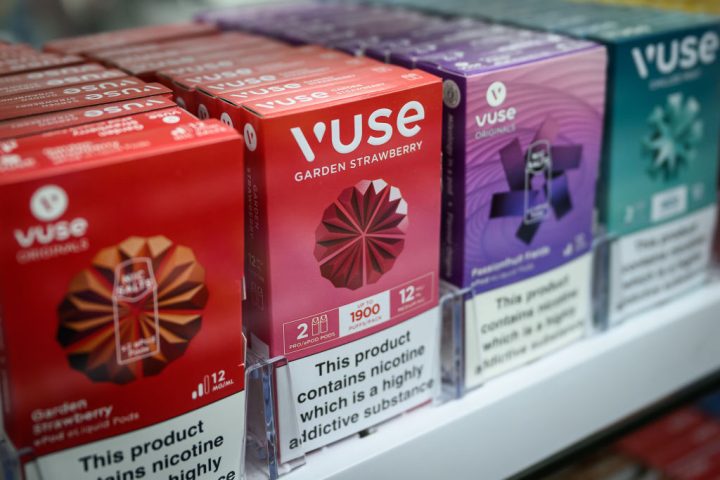The government thinks it has finally found a popular policy. Better still, it is a policy that it can implement, or at least legislate for. According to a press release from the Department of Health and Social Care, a ban on disposable vapes is supported by ‘nearly 70 per cent of parents, teachers, healthcare professionals and the general public’. The British public love a ban. Last month a survey found that 29 per cent of us want to close the nightclubs to deal with the remnants of Covid-19 and 20 per cent want to re-introduce lockdown.
So, vox populi, vox dei? I think not. Support for banning disposable e-cigarettes needs to be put in the context of another survey carried out a few weeks ago which found that 41 per cent of the population think that vaping is as unhealthy as smoking; a further 11 per cent think it is worse. Only 24 per cent picked the correct answer which is that smoking is a lot worse. When the majority of voters are so woefully misinformed, politicians should not pander to them.
If adults respond to the ban by buying cheap refillables, what is to stop children doing the same?
At the heart of this issue lies a genuine problem. In recent years, there has been a glut of cheap, brightly coloured disposable vapes coming in from China and being sold to minors by unscrupulous retailers. The vapes themselves are often illegal (over four million of them were seized at the border last year). The illegal sale of illegal vapes to children is a problem of law enforcement, but it is easier for the government to create another law than to enforce the laws that already exist.
For the minority of Britons who understand that vaping is much less hazardous than smoking and that e-cigarettes are proven to be the most effective way to get people off cigarettes, banning a whole category of vapes is a risky move. A study funded by Cancer Research UK concluded that banning disposables ‘has the potential to slow progress in driving down smoking prevalence and reducing smoking-related harm’. The pressure group Action on Smoking (ASH), which usually shares the public’s love for banning things, says that ‘the risk of unintended consequences is too great for us to support a ban’. ASH’s former director, Clive Bates, says the proposed ban ‘sinks further into empty gesture politics, goes against evidence, does more harm than good, and makes everything worse’. He has called on the Chief Medical Officer, Chris Whitty, to resign for publicly supporting it.
There is also the small matter of personal liberty. Banning adults from buying products because minors sometimes buy them illegally has never been a principle of UK law. Many more 11-15 year olds drink alcohol regularly than vape regularly, but no one is talking about banning cider.
What are the 2.6 million adult users of disposable e-cigarettes going to do when they get banned? We don’t have much direct evidence, but we can learn lessons from what happens when e-cigarette flavours are prohibited. This evidence is particularly pertinent since the government is also talking about banning some e-cigarette flavours.
A study from the USA found that a ban on non-tobacco flavours led to a 4.6 per cent increase in cigarette sales. A study of seven US states also found that flavour bans were associated with higher cigarette sales. Two studies have looked at what happened in San Francisco after flavoured vapes were banned. Both of them found that cigarette smoking increased.
This is consistent with evidence showing that e-cigarette taxes are associated with more cigarette sales. The lesson is simple. Vaping and smoking are direct substitutes. If you make one of them less appealing, less available or more expensive, you give the other a boost. Anti-vaping policies are effectively pro-smoking policies.
Supporters of a ban on disposable vapes will argue that adults who use these products can simply switch to refillables which are better for the environment and cheaper in the long run. Many of them will doubtless do that. A study published last week noted that ‘disposable brands have already launched refillable versions with similar branding and flavours, which are sold for ∼£8.’ But if adults respond to the ban by buying cheap refillables, what is to stop children doing the same? We are not addressing the problem unless we stop retailers selling e-cigarettes to minors. That would take some hard work and would not fill a day in the government’s grid, but it is the only answer.






Comments